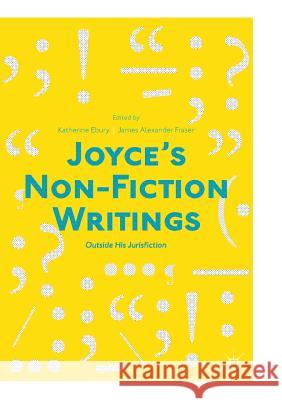Joyce's Non-Fiction Writings: Outside His Jurisfiction » książka
topmenu
Joyce's Non-Fiction Writings: Outside His Jurisfiction
ISBN-13: 9783030101763 / Angielski / Miękka / 2019 / 230 str.
Kategorie:
Kategorie BISAC:
Wydawca:
Palgrave MacMillan
Język:
Angielski
ISBN-13:
9783030101763
Rok wydania:
2019
Wydanie:
Softcover Repri
Ilość stron:
230
Waga:
0.31 kg
Wymiary:
21.01 x 14.81 x 1.37
Oprawa:
Miękka
Wolumenów:
01
Dodatkowe informacje:
Wydanie ilustrowane











